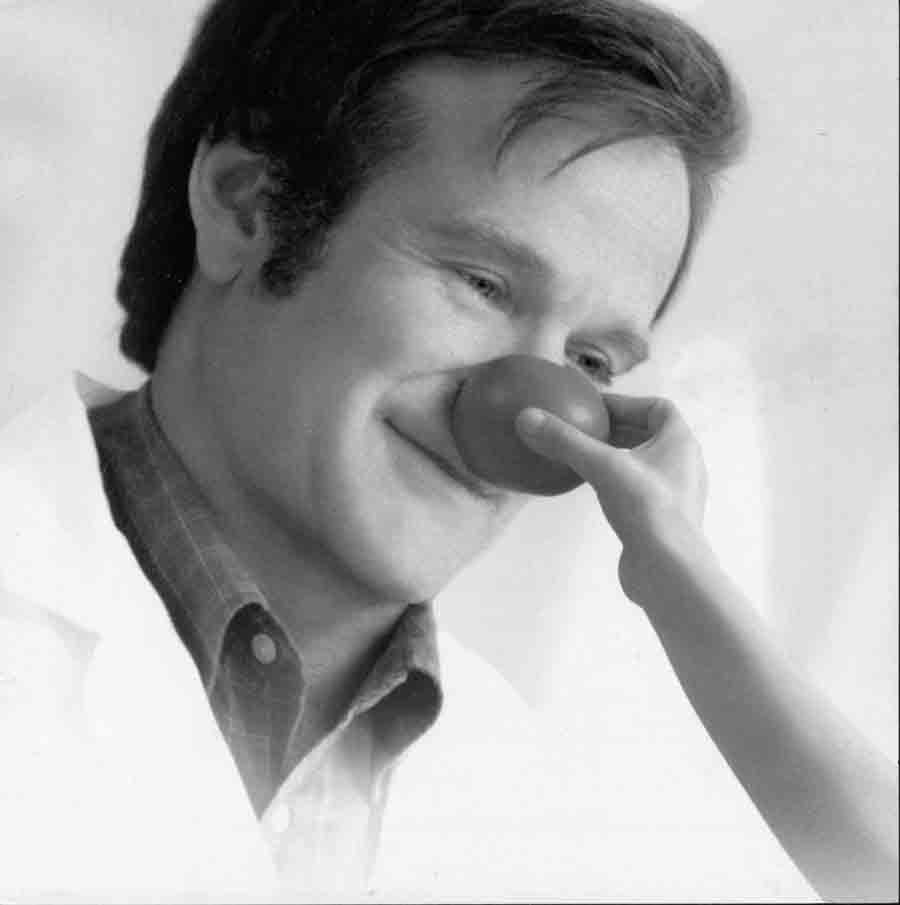To say I’m sad about the news of Robin Williams’ apparent suicide would be an understatement. I would never have guessed him to have gone that way. When I think of all the famous actors I respect, I always assumed he was one evolutionary or spiritual step above the rest, far too intelligent to be mired down by the pettiness of celebrity culture, one who had almost certainly attained a greater perspective on things. No, it turns out he was like the rest of us, burdened by our own human weaknesses and succumbing to a greater sense of futility. It got to even him at the end. Of all the recent and not-so-recent celebrity deaths and suicides, his has struck me deepest. As if holding a mirror up to my own shortcomings, it almost made me feel the same.
I remember growing up with him from the age of seven, when Mork and Mindy first aired on television. Even then, my child-mind thought out loud: ‘Who is this lunatic? Why is this grown-up able to act more like a crazy kid that any kid I know?’ He was the zany uncle you wish you had, the friend you wished your parents would bring over on weekends to take you out on some ill-fated misadventure. Then when he began earning his serious roles, like The Survivors with Walter Matthau, we started to see something other than the comic side of him. There was humanity there, a humanity his arm-waving physicality managed to bring to life with breathtaking vigour. It was clear to anyone seeing his performance: in a world set on its own violent demise, he actually gave a damn.
None of his movies displayed this more than The World According To Garp, John Irvine’s surreal tragi-comedy about a character Williams was able to infuse with a soul the novel simply failed to. I have an ongoing list of movies I prefer over the novels, this being one of them, but if there were any obvious reason for this it would have to be that the novel doesn’t have Robin Williams in it. On the screen, he was Garp: a confused boy looking for his writer’s identity, caught between the deadly feminist battleground of his mother’s fame and the void left in the absence of a father. A void he filled by eventually being a father, the sort of father we dream of having, who watched you tenderly and protectively as you slept from the doorway of the hall, who wrestled and brought Shakespearean theatrics to horseplay. Those scenes in the movie were so obviously candid and improvised; it was that same Mork from Ork character. The quintessential child-man, whose energy and joie de vivre we could only envy, yet still struggling with some inner demon that threatened to ruin the fruits of his labour.
Sometimes, as we grow older, we drift apart from our idols. Maybe they grow up to repeat their successes, or maybe we grow cynical and find ourselves unable to reconcile ourselves to those qualities that once entertained us as children. My indifference to his later roles didn’t diminish the influence he had on me growing up. I felt confident in the knowledge that people like Williams existed as pillars of great intellect, maintaining a cosmic balance of wit within a culture of dangerous imbeciles. To think that such a pillar has collapsed makes me doubt the stability of that balance.
